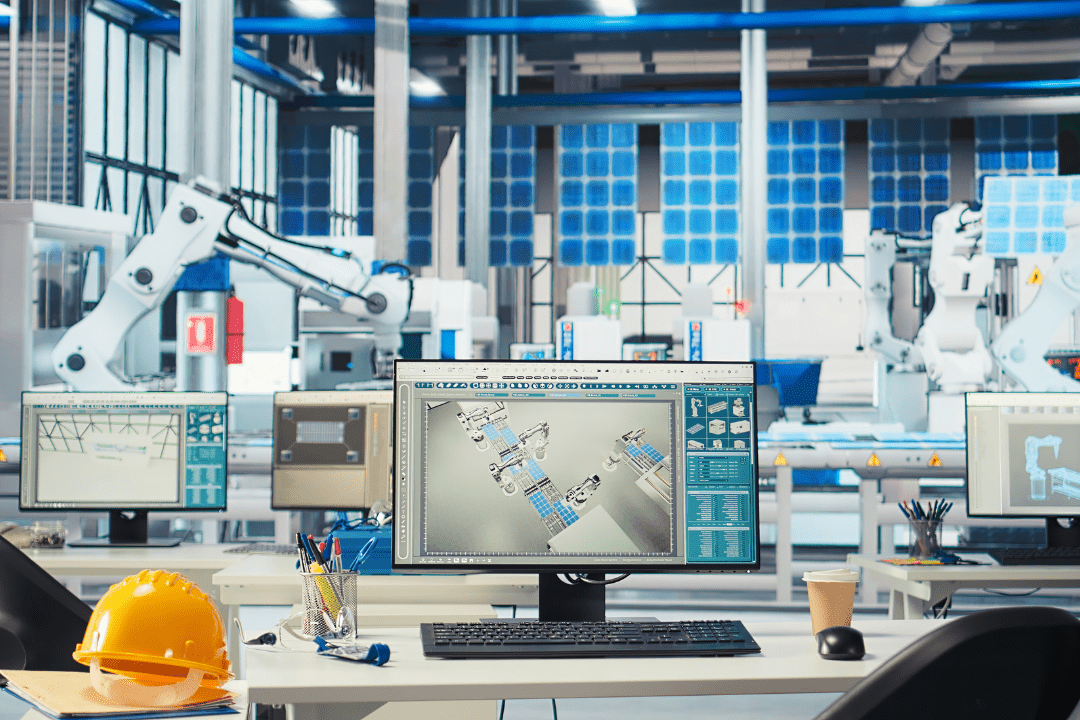India’s manufacturing landscape is undergoing a profound transformation, fueled by the rapid adoption of smart manufacturing technologies. These innovations are enhancing operational efficiency by redefining the country’s industrial future, making it more agile, competitive, and globally relevant.
Smart manufacturing also referred to as Industry 4.0 refers to the use of technologies like artificial intelligence (AI), Internet of Things (IoT), robotics, real-time data analytics, and cloud computing to automate and optimize factory operations. This shift is no longer aspirational; it is already in motion across sectors such as automotive, electronics, precision engineering, and consumer goods.
While we see an overall rise in the manufacturing sector, it was valued at $29.9 billion in 2024 and is expected to grow to $66.8 billion by 2030, with a CAGR of 13.8%, according to a report by Grand View Research and Manufacturing Today India.
Another indicator of this momentum is the smart factory automation segment, which reached $3.3 billion in 2024 and is projected to cross $8.1 billion by 2033, growing at a CAGR of 10.6%, as per IMARC Group’s analysis.
These figures reflect a broader industrial pivot toward more tech-driven, resilient, and future-ready manufacturing systems.
Why Smart Manufacturing Matters
Smart manufacturing is more than a buzzword- it delivers tangible, long-term benefits:
- Improved Efficiency
By integrating real-time sensors, automated quality checks, and predictive maintenance, smart factories drastically reduce machine downtime and material waste. These insights allow manufacturers to act preemptively rather than reactively, saving both time and cost.
- Enhanced Product Quality
Automation and AI-driven quality control tools ensure consistent output, which is particularly crucial in sectors like auto components, aerospace, and pharmaceuticals. Digital traceability further allows end-to-end monitoring, improving customer confidence and compliance.
- Greater Flexibility in Production
Smart systems offer real-time adaptability. Whether it’s responding to sudden shifts in demand or customizing production batches, the flexibility of digital manufacturing tools makes the system more responsive and scalable.
- Better Energy and Resource Management
Energy-efficient equipment combined with data analytics enables factories to optimize usage, minimize carbon footprints, and reduce operational costs an increasingly important metric for global buyers.
The Indian government has recognized the importance of digitizing the manufacturing sector through initiatives such as Smart Advanced Manufacturing and Rapid Transformation Hub (SAMARTH Udyog) and production-linked incentive (PLI) schemes that encourage investments in high-tech production.
Additionally, several industrial corridors such as the Delhi–Mumbai Industrial Corridor (DMIC) and the Chennai–Bengaluru Industrial Corridor (CBIC) are being developed to attract high-value, tech-enabled manufacturing hubs.
State-level policy push and increasing availability of high-speed internet and cloud infrastructure have further accelerated adoption, especially in urban and Tier 2 industrial zones.
The Role of SMEs in the Smart Revolution
While large enterprises have led the initial wave, small and medium enterprises (SMEs) are increasingly adopting smart manufacturing tools to stay competitive in both domestic and international markets.
Modular automation systems, cloud-based software, and affordable sensor technologies are lowering the entry barrier for SMEs. These solutions can be implemented in stages allowing gradual transformation without significant disruption to existing workflows.
What’s also encouraging is the rise of public–private partnerships and skilling programs that aim to equip workers with the technical know-how to operate in these smarter environments. Contrary to the fear that automation eliminates jobs, smart factories are creating demand for new, tech-enabled roles, such as data operators, systems analysts, and robotics maintenance specialists.
Despite the clear benefits, the shift to smart manufacturing is not without its challenges. Capital investment remains a concern, especially for small manufacturers. Additionally, the need for skilled labour, cybersecurity infrastructure, and interoperability between legacy and digital systems requires careful planning and phased execution.
However, with global supply chains becoming increasingly digital and demand for traceable, sustainable production rising, the shift is no longer optional. For India to maintain its edge in global exports and supply resilience, embracing smart manufacturing is critical.
The Bigger Picture
Smart manufacturing is not just about upgrading machinery or installing sensors, it’s about rethinking how factories operate and how value is created. For India, this transformation will play a pivotal role in making the manufacturing sector contribute more meaningfully to GDP, employment, and innovation.
As India moves closer to becoming a $5 trillion economy, manufacturing, especially of the smart kind, will be the backbone that supports this growth. The factories of the future will be not only digital but also sustainable, skilled, and globally competitive.
Disclaimer: The views and opinions expressed in this article are solely those of the author and do not necessarily reflect the official policy or position of Machine Maker or its editorial team. The information provided is based on the author’s personal insights and experiences and is intended for informational purposes only.







